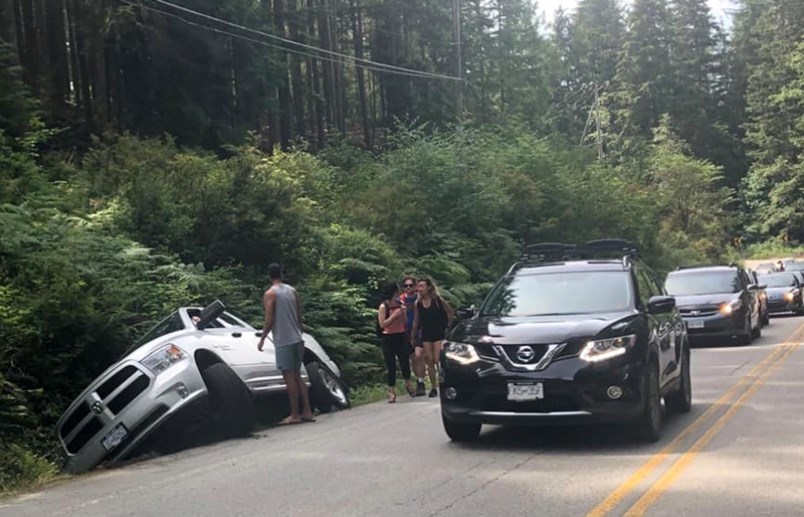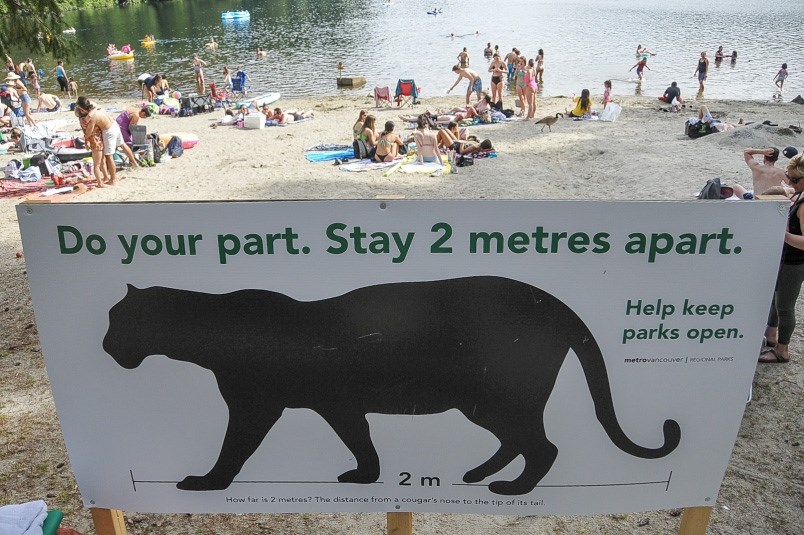With its nearly three-quarter of a million visitors, Belcarra Regional Park may be a victim of its own success.
Close to the Tri-Cities, where residents are seeking places to hike, swim and recreate, the park is one of Metro Vancouver’s busiest — especially during the COVID-19 pandemic when people are looking for places to be outdoors.
But the popularity of the large park with the ocean at its doorstep and Sasamat Lake plunked down in the centre, hasn’t been without its challenges.
Parking problems, crowds, reports of “friction” between visitors especially at White Pine Beach, are among the issues the park run by Metro Vancouver has faced this past summer.

But those problems could be a thing of the past if Metro Vancouver goes ahead with a pay parking system for the park’s 700 spots.
Still in the study stage, the pay parking plan is part of a larger effort to manage capacity in Metro Vancouver’s busiest regional parks, which also include Boundary Bay Regional Park in Delta and Lynn Headwaters Regional Park in North Vancouver.
“We’ve just seen unprecedented use of the regional parks, which is fabulous, it’s one of the only places people can go to physical distance,” said Mike Redpath, Metro Vancouver’s director of regional parks.
But the popularity of parks has its downside, including environmental issues if too many people crowd in an area and a less positive experience for visitors when the park is too busy.
“We also want to ensure people have a safe park experience where they can enjoy nature and where physical distancing is accomplished,” Redpath said.
While he said officials are still “exploring” pay parking for Belcarra park, other options are being considered, too, including a shuttle bus that would transport visitors to the park from another spot, something that has already been tried with some success this summer at Boundary Bay and Lynn Valley parks.
A reservation system for parking is another option, although it’s not in the cards for Belcarra, where traffic management, signage, social media updates and cooperation from the villages of Anmore, Belcarra and Port Moody have helped with parking issues.
Redpath said the other parks are further along in plans for capacity management, but depending on the outcome of more study, pay parking could be coming to Belcarra Regional Park next year.
Shuttle buses may also be introduced in the future to provide with car-free alternatives.
Putting these strategies in place will cost money, Redpath said, but the plan is for revenue from pay parking to help cover their implementation.
So far this year, Metro Vancouver parks have seen 12 million visitors, up 3.5 million over last year over the same period.



